Have you ever heard of the Water Splashing Festival? You probably have if you have ever been to southeast Asian countries. But did you know a part of China also celebrates this?
For some ethnic minorities in south Yunnan, the Water Splashing Festival is their new year celebration. In 2018, they will be celebrating their year 1380.
Every year around the middle of April, the Dai, Deang, Bulang and Achang people celebrate, the main event happens in Xishuangbanna or Mangshi and attracts thousand of tourists every year.
For this article though, we will talk about water splashing in the small, unknown village of Mengka in Cangyuan county of Southwest Yunnan.
Mengka Dai village has no more than 50 wooden houses on a hill, everyone knows each other, and they are all more or less relatives.
Day 1
When we arrived in the village, we were too late, the festivities had already started. Immediately we were surrounded by miniature monks. We barely had time to but down our luggage and cameras, before we were drowned in buckets of ice-cold water. Luckily the weather was sunny and one of the mini-monks brought us to his home to change and eat.
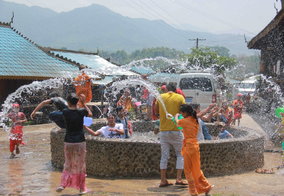
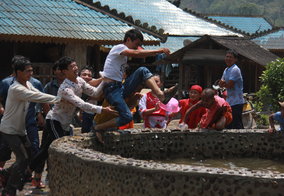
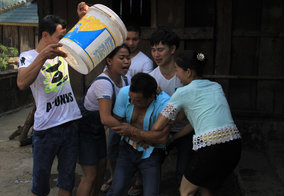
That whole afternoon, children played and splashed each other, youngsters threw each other in the village pond (phone, money and all), grown ups hiding in their homes were carried outside and doused with buckets, and elderly were gently sprinkled in the back. Among this good-friendly atmosphere was the steady rhythm of Elephant Drums and gongs. (Elephant Drums is a local kind of drum that looks like an elephant leg).
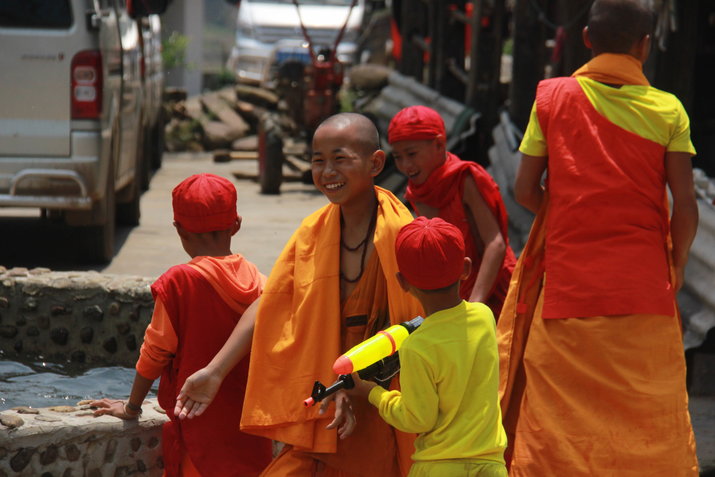
What I call mini-monks are all the local boys who become monks, when they are around five-six years old. They live together in the village temple and eat food donated by the villagers. There they learn about Dai Buddhism and Dai scriptures. When they are around 12 years old, they can choose to continue being a monk or return to secular life.
Day 2
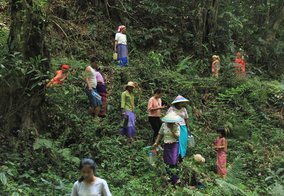
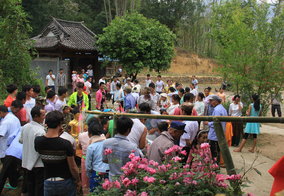
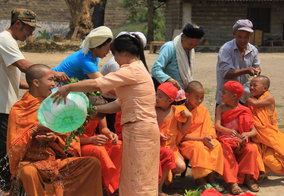
Locals all climbed the mountain to a natural spring to collect the purest water. This pure water was then used to wash the many Buddha statues in the temple. Only men were allowed to touch the Buddha. Then there was a ceremony, where people splashed the monks. That’s when we realized splashing is not just a fun game:
Water is regarded by the Dai as a symbol of religious purification and goodwill among people. Therefore, splashing a fellow human being during the Festival is an expression of the desire for good luck and prosperity to that person.
Day 3
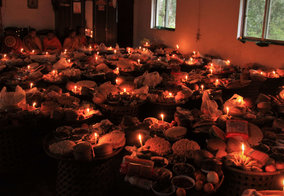
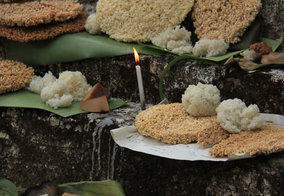

Everyone got up very early to cook many dishes. At 6 a.m. all those dishes were brought as offerings to the Buddha. Each family brought there own small table with 6 or 7 dishes. Candles were lit, piles of sticky rice and fruit were offered and prayers were sung.
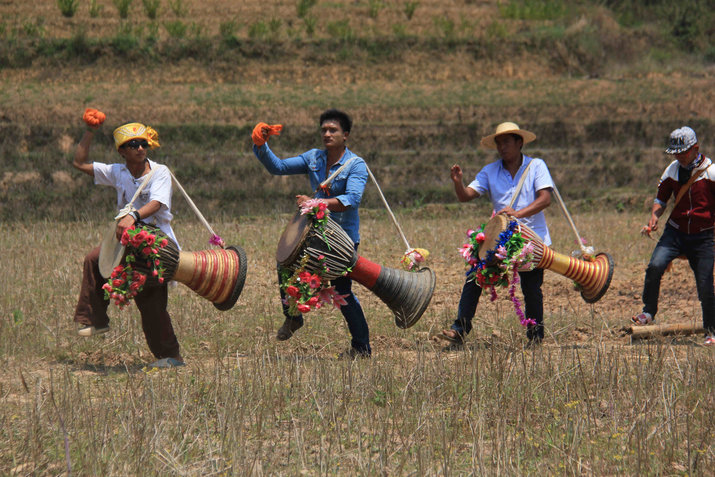
Then the whole village embarked in 5 big trucks and we left for the Duisha (sand-piling) ceremony. The first stop was in a field to get the best sand, as indicated by the ancestors and elders. The next stop was a sacred tree in the middle of the forest. After piling sand, saying prayers and giving offerings at the base of the tree, everyone started dancing, playing drums and setting off fireworks under the canopy.
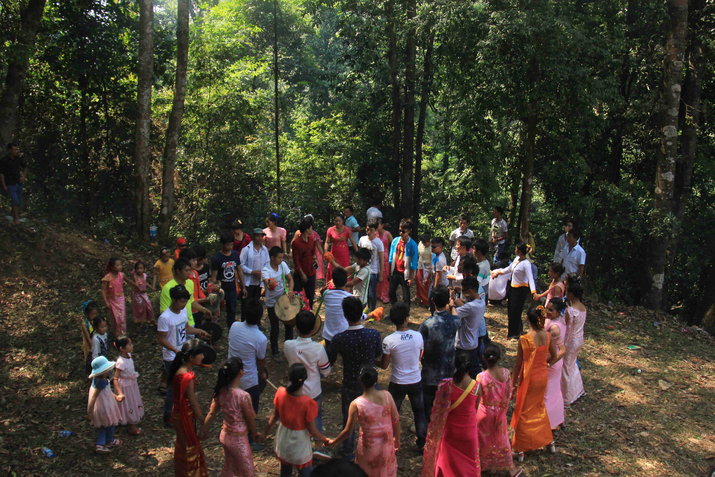
Things escalated when old grandmas started splashing everyone with waterbottles.
After everyone came back to the village and drank home-made tea, the celebrations were finished and we headed back to The Spring City the next morning.
We felt honored to have been able to share the life of the villagers during their most important celebrations. Every day a different family or house wanted to invite us to eat or drink tea. They were among the kindest and most welcoming people we have ever met. We will definitely miss this village with it’s wooden houses and mini-monks.
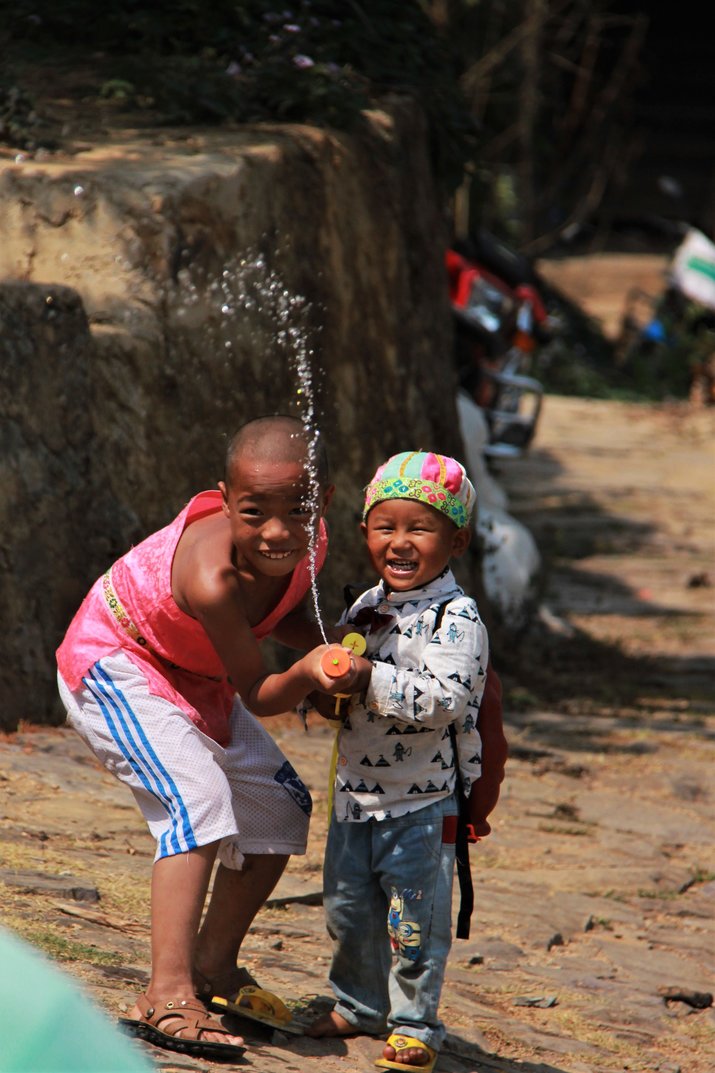
Coming soon...Nice clips of the whole event on our Facebook or YouTube accounts.
Next on the Festival Sequel: Discover the Mud Rubbing Festival of the Wa people
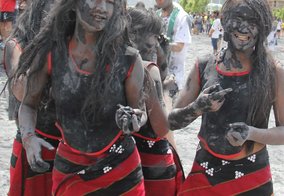
Want to come to Yunnan and see this for yourself? Take a look at our website, or contact us for more information!
- 92 reads
- Like this







